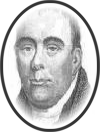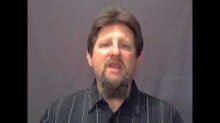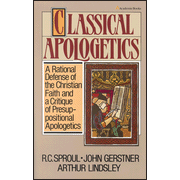Archive
Question 4-Puritan Catechism
A. God is Spirit, (John 4:24) infinite, (Job 11:7) eternal, (Psalm 90:2; 1 Timothy 1:17) and unchangeable (James 1:17) in his being, (Ezekiel 3:14) wisdom, power, (Psalms 147:5) holiness, (Revelation 4:8) justice, goodness and truth. (Ezekiel 34:6,7)
Charles Haddon Spurgeon-A Puritan Catechism
Confession statement 11
Published in 1646
The Text used: There has been some updating of Old English words but otherwise no changes have been made to the original texts.
CONFESSION OF FAITH of seven congregations or churches of Christ in London. which are commonly, but unjustly, called Anabaptists; published for the vindication of the truth and information of the ignorant; likewise for the taking off those aspersions which are frequently, both in pulpit and print, unjustly cast upon them. Printed in London, Anno 1646.
XI UNTO this office He was appointed by God from everlasting; and in respect of his manhood, from the womb called, separated, and anointed most fully and abundantly with all gifts necessary. God having without measure poured out His Spirit upon Him.
Prov.8:23; Isa.42:6, 49:15, 11:2.3.4,5. 61 :1.2 ; Luke 4:17,22; John 1:14,26, 3:34.
The First London Baptist Confession 1644/46
The Reformers Doctrines were confirmed by the miracles of Christ and the Apostles
 3. In demanding miracles from us, they act dishonestly; for we have not coined some new gospel, but retain the very one the truth of which is confirmed by all the miracles which Christ and the apostles ever wrought. But they have a peculiarity which we have not — they can confirm their faith by constant miracles down to the present day! Nay rather, they allege miracles which might produce wavering in minds otherwise well disposed; they are so frivolous and ridiculous, so vain and false. But were they even exceedingly wonderful, they could have no effect against the truth of God, whose name ought to be hallowed always, and everywhere, whether by miracles, or by the natural course of events. The deception would perhaps be more specious if Scripture did not admonish us of the legitimate end and use of miracles. Mark tells us (Mark 16:20) that the signs which followed the preaching of the apostles are wrought in confirmation of it; so Luke also relates that the Lord “gave testimony to the word of his grace, and granted signs and wonders to be done” by the hands of the apostles, Acts 14:3.) Very much to the same effect are those words of the apostle, that salvation by a preached gospel was confirmed, “the Lord bearing witness with signs and wonders, and with divers miracles,” (Hebrews 2:4.) Those things which we are told are seals of the gospel, shall we pervert to the subversion of the gospel? what was destined only to confirm the truths shall we misapply to the confirmation of lies? The proper course, therefore, is, in the first instance, to ascertain and examine the doctrine which is said by the Evangelist to precede; then after it has been proved, but not till then, it may receive confirmation from miracles. But the mark of sound doctrine given by our Savior himself is its tendency to promote the glory not of men, but of God, (John 7:18; 8:50.) Our Savior having declared this to be the test of doctrine, we are in error if we regard as miraculous, works which are used for any other purpose than to magnify the name of God. 13 And it becomes us to remember that Satan has his miracles, which, although they are tricks rather than true wonders, are still such as to delude the ignorant and unwary. Magicians and enchanters have always been famous for miracles, and miracles of an astonishing description have given support to idolatry: these, however, do not make us converts to the superstitions either of magicians or idolaters. In old times, too, the Donatists used their power of working miracles as a battering-ram, with which they shook the simplicity of the common people. We now give to our opponents the answer which Augustine then gave to the Donatists, (in Joan. Tract. 23,) “The Lord put us on our guard against those wonder-workers when he foretold that false prophets would arise, who, by lying signs and divers wonders would, if it were possible deceive the very elect,” (Matthew 24:24.) Paul, too, gave warning that the reign of antichrist would be “with all power, and signs, and lying wonders,” (2 Thessalonians 2:9.)
3. In demanding miracles from us, they act dishonestly; for we have not coined some new gospel, but retain the very one the truth of which is confirmed by all the miracles which Christ and the apostles ever wrought. But they have a peculiarity which we have not — they can confirm their faith by constant miracles down to the present day! Nay rather, they allege miracles which might produce wavering in minds otherwise well disposed; they are so frivolous and ridiculous, so vain and false. But were they even exceedingly wonderful, they could have no effect against the truth of God, whose name ought to be hallowed always, and everywhere, whether by miracles, or by the natural course of events. The deception would perhaps be more specious if Scripture did not admonish us of the legitimate end and use of miracles. Mark tells us (Mark 16:20) that the signs which followed the preaching of the apostles are wrought in confirmation of it; so Luke also relates that the Lord “gave testimony to the word of his grace, and granted signs and wonders to be done” by the hands of the apostles, Acts 14:3.) Very much to the same effect are those words of the apostle, that salvation by a preached gospel was confirmed, “the Lord bearing witness with signs and wonders, and with divers miracles,” (Hebrews 2:4.) Those things which we are told are seals of the gospel, shall we pervert to the subversion of the gospel? what was destined only to confirm the truths shall we misapply to the confirmation of lies? The proper course, therefore, is, in the first instance, to ascertain and examine the doctrine which is said by the Evangelist to precede; then after it has been proved, but not till then, it may receive confirmation from miracles. But the mark of sound doctrine given by our Savior himself is its tendency to promote the glory not of men, but of God, (John 7:18; 8:50.) Our Savior having declared this to be the test of doctrine, we are in error if we regard as miraculous, works which are used for any other purpose than to magnify the name of God. 13 And it becomes us to remember that Satan has his miracles, which, although they are tricks rather than true wonders, are still such as to delude the ignorant and unwary. Magicians and enchanters have always been famous for miracles, and miracles of an astonishing description have given support to idolatry: these, however, do not make us converts to the superstitions either of magicians or idolaters. In old times, too, the Donatists used their power of working miracles as a battering-ram, with which they shook the simplicity of the common people. We now give to our opponents the answer which Augustine then gave to the Donatists, (in Joan. Tract. 23,) “The Lord put us on our guard against those wonder-workers when he foretold that false prophets would arise, who, by lying signs and divers wonders would, if it were possible deceive the very elect,” (Matthew 24:24.) Paul, too, gave warning that the reign of antichrist would be “with all power, and signs, and lying wonders,” (2 Thessalonians 2:9.)
But our opponents tell us that their miracles are wrought not by idols, not by sorcerers, not by false prophets, but by saints: as if we did not know it to be one of Satan’s wiles to transform himself “into an angel of light,” (2 Corinthians 11:14.) The Egyptians, in whose neighborhood Jeremiah was buried, anciently sacrificed and paid other divine honors to him, (Hieron. In Praef. Jeremy.) Did they not make an idolatrous abuse of the holy prophet of God? and yet, in recompense for so venerating his tomb, they thought that they were cured of the bite of serpents. What, then, shall we say but that it has been, and always will be, a most just punishment of God, to send on those who do not receive the truth in the love of it, “strong delusion, that they should believe a lie”? (2 Thessalonians 2:11.) We, then, have no lack of miracles, sure miracles, that cannot be gainsaid but those to which our opponents lay claim are mere delusions of Satan, in as much as they draw off the people from the true worship of God to vanity.
John Calvin-Prefatory Address to Francis King of the French-Institutes of the Christian Religion
There is unity throughout the whole of scripture
 While there be great variety in the teaching of the Word, there is an unmistakable unity underlying the whole. Though He employed many mouthpieces, the Holy Scriptures have but one Author; and while He
While there be great variety in the teaching of the Word, there is an unmistakable unity underlying the whole. Though He employed many mouthpieces, the Holy Scriptures have but one Author; and while He
“at sundry times and in divers manners spake in time past unto the fathers by the prophets” and “hath in these last days spoken unto us by His Son” (Hebrews 1:1,2),
yet He who spoke by them was and is One
“with whom is no variableness, neither shadow of turning” (James 1:17),
who throughout all ages declares: “I am the Lord, I change not” (Malachi 3:6). Throughout there is perfect agreement between every part of the Word: it sets forth one system of doctrine (we never read of “the doctrines of God,” but always “the doctrine”: see Deuteronomy 32:2; Proverbs 4:2; Matthew 7:28; John 7:17; Romans 16:17, and contrast Mark 7:7; Colossians 2:22; 1 Timothy 4:1; Hebrews 13:9) because it is one single and organic whole. That Word presents uniformly one way of salvation, one rule of faith. From Genesis to Revelation there is one immutable Moral Law, one glorious Gospel for perishing sinners. The Old Testament believers were saved with the same salvation, were indebted to the same Redeemer, were renewed by the same Spirit, and were partakers of the same heavenly inheritance as are New Testament believers.
Arthur W. Pink The Application of Scriptures-A Study of Dispensationalism
William Lane Craig-Online Debate
February 1-2
IS FAITH IN GOD REASONABLE?
WILLIAM LANE CRAIG VS. ALEX ROSENBERG
LIVE DEBATE ONLINE
West Lafayette, Indiana and online
=============================================
What hath Jerusalem to do with Athens? Or what hath faith to do with reason? Drs. William Lane Craig and Alex Rosenberg will debate this all important and pervasive question concerning the reasonableness of faith in God. The nature of the question in this debate is no mere academic matter. The question of God is the most important question. One’s answer to it will impact nearly all other beliefs one holds from common notions of morality to politics and from our interest and investigation of our world to what we take to be our purpose(s) in life. Is “faith” foolish? By this, should it be understood to be blind? Or is it reasonable and, if so, by what measure and to whom is it foolishness?
For many, Mark Twain is right on the mark when he said that “Faith is believing something you know ain’t true.” Yet the great thinkers of Judaism and Christianity like Philo, Moses Maimonides, Thomas Aquinas, and John Calvin considered faith to be an extraordinarily important virtue (moral and/or intellectual)! Indeed, it is not only the condition by which salvation is appropriated in these Abrahamic faith traditions (which are taken by insiders to actually be knowledge traditions), but it is the basis for movements from Mother Teresa’s compassion and our concern for the poor to Isaac Newton’s inspiration in science in light of God’s creation of the world and man being made in God’s image. Is faith in God reasonable? Ought we to have faith in God?
VIEW DEBATE ONLINE:
February 1, 2013
Friday, 7 9:30 pm EST LIVE or 7-9:30 pm PST DELAYED
Sign up online at www.biola.edu/debate
ATTEND A LIVE DEBATE SCREENING:
Join a group in your state or country!
More info: http://live.biola.edu/locations/
ATTEND DEBATE LIVE:
February 1, 2013
Friday, 7 9:30 pm EST
PurdueUniversity
Eliott Hall of Music
West Lafayette, IN
Cost: FREE
More info: www.apologeticsevents.com
FOOLISHNESS OF FAITH CONFERENCE:
February 2, 2013
Time: Saturday, 9:30 am – 3:45 pm
Location: PurdueUniversity
West Lafayette, IN
Cost: FREE
More info: www.apologeticsevents.com
The marriage feast for the Son
 Speaking on the sacrifice of Christ- Andrew Fuller declared……The blessings of pardon, peace, and eternal life, are compared to a feast, or marriage-supper, which the King of heaven and earth hath made for his Son; and he hath commanded his servants to go forth, as to the highways and hedges, and to invite without distinction; yea, to compel them to come in. Nor is this all: you are exhorted and commanded to believe in Christ, on pain of damnation. All your other you merely to the curse of the law; but the sin of unbelief, if persisted in, will expose you, like the barren fig tree, to the curse of the Saviour, from which there is no redemption.
Speaking on the sacrifice of Christ- Andrew Fuller declared……The blessings of pardon, peace, and eternal life, are compared to a feast, or marriage-supper, which the King of heaven and earth hath made for his Son; and he hath commanded his servants to go forth, as to the highways and hedges, and to invite without distinction; yea, to compel them to come in. Nor is this all: you are exhorted and commanded to believe in Christ, on pain of damnation. All your other you merely to the curse of the law; but the sin of unbelief, if persisted in, will expose you, like the barren fig tree, to the curse of the Saviour, from which there is no redemption.
Rev. Andrew Fuller–The Great Question Answered
John Tombes’ Catechism on Baptism Pt 10
33. Is not the Infant-baptism sufficient if it be avouched at age?
It is not a sufficient discharge of their obedience to Christ’s command, which requires each Person to be Baptized after his own Repentance and believing in Christ, Mark 16.16. Mat. 28. 19. Acts 2.38. Ephes. 4.5.
34. What is the chief end of Baptism?
To testifie the Repentance, Faith, Hope, Love, and Resolution of the Baptized to follow Christ, Gal. 3.27. Rom. 6.3,4. 1 Cor. 15.29. calling upon the Name of the Lord, Acts 22.16.
35. How came Infant-baptism to be common in the ChristianChurches?
As Infant-communion came from mistake of John 6.53. So Infant-baptism began about the third Age of the Christian Church, from mistake of John 3.5. the opinion of its giving Grace, and the necessity of it to save the Infant dying from perishing, and after Augustin’s time became common, which before was not so frequent.
36. Is there any evil in it?
Infant-baptism tends much to harden People in presumption, as if they were Christians afore they know Christ, and hinders much the Reformation of Christian Churches, by filling them with ignorant and scandalous members, besides the great sin of profaning God’s Ordinance.
A Short Catechism about Baptism by John Tombes, B.D.
Heb 6.2. Of the Doctrine of Baptisms. Luke 7.35. But Wisdom is justified of all her Children. London: 1659
Question 3-Puritan Catechism
 Q. What do the Scriptures principally teach?
Q. What do the Scriptures principally teach?
A. The Scriptures principally teach what man is to believe concerning God, and what duty God requires of man (2 Timothy 1:13; Ecclesiastes 12:13)
Charles Haddon Spurgeon-A Puritan Catechism
Confession statement 10
Published in 1646
The Text used: There has been some updating of Old English words but otherwise no changes have been made to the original texts.
CONFESSION OF FAITH of seven congregations or churches of Christ in London. which are commonly, but unjustly, called Anabaptists; published for the vindication of the truth and information of the ignorant; likewise for the taking off those aspersions which are frequently, both in pulpit and print, unjustly cast upon them. Printed in London, Anno 1646.
X JESUS Christ is made the mediator of the new and everlasting covenant of grace between God and man, ever to be perfectly and fully the prophet, priest, and king of the Church of God for evermore.
1 Tim.2:5; Heb.9:15; John 14:6; Isa.9:6,7.
The First London Baptist Confession 1644/46
Those who opposed the Reformers claimed knowledge, but were ignorant of the things of God
 2. It is owing to the same ignorance that they hold it to be doubtful and uncertain; for this is the very thing of which the Lord complains by his prophets “The ox knoweth his owner, and the ass his master’s crib; but Israel does not know, my people does not consider,” (Isaiah 1:3.) But however they may sport with its uncertainty, had they to seal their own doctrine with their blood, and at the expense of life, it would be seen what value they put upon it. Very different is our confidence — a confidence which is not appalled by the terrors of death, and therefore not even by the judgment-seat of God.
2. It is owing to the same ignorance that they hold it to be doubtful and uncertain; for this is the very thing of which the Lord complains by his prophets “The ox knoweth his owner, and the ass his master’s crib; but Israel does not know, my people does not consider,” (Isaiah 1:3.) But however they may sport with its uncertainty, had they to seal their own doctrine with their blood, and at the expense of life, it would be seen what value they put upon it. Very different is our confidence — a confidence which is not appalled by the terrors of death, and therefore not even by the judgment-seat of God.
John Calvin-Prefatory Address to Francis King of the French-Institutes of the Christian Religion














Recent Comments